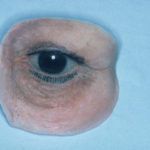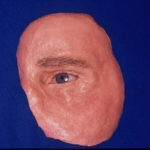Maxillofacial Prosthetics
 Maxillofacial Prosthetics involve the rehabilitation of patients with defects or disabilities that were present at birth or developed due to disease or trauma of the craniofacial and stomatognathic region with the use of a prosthesis. Prostheses are devices designed to replace a missing part of the body.
Maxillofacial Prosthetics involve the rehabilitation of patients with defects or disabilities that were present at birth or developed due to disease or trauma of the craniofacial and stomatognathic region with the use of a prosthesis. Prostheses are devices designed to replace a missing part of the body.
Intraoral prostheses are often needed to replace missing areas of bone or oral tissues and restore functions such as swallowing, speech, and chewing. Tongue prostheses, surgical and final obturators, along with the use of dental implants, are useful tools for patients’ rehabilitation.
In other cases, a facial prosthesis may be indicated for cosmetic, functional and psychological reasons. Artificial orbitals, eyes, noses and ears form parts of this specialty. In these special cases, surgical reconstruction is the best way to restore appearance and function. However, such surgery is not always possible or disirable.
In such cases the alternative treatment could be a facial prosthesis which is made of medical grade silicon rubber. Silicones are the most widely used materials for facial restorations because they have the surface texture and hardness within the range of the human skin. The facial prosthesis is custom made to suit the fit and appearance of each patient.
Fabrication is a simple and painless procedure that requires 3-8 office visits to complete. The prosthesis may be held in place with special medical-grade adhesives or attachments connected to implants that have been placed into the bone around the effected facial area. Also magnets may be used for retention of the prosthesis which should be removed during sleeping time.
The ultimate goal of maxillofacial prosthetic treatment is to improve the patients’ quality of life enabling them to harmoniously integrate in the overall social procedure.
ATHENS DENTAL CASES
Ear prosthesis- case 1


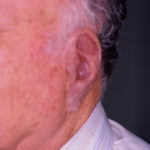
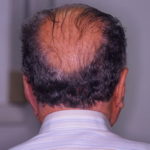
Ear prosthesis- case 2



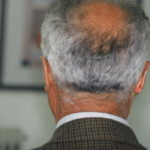
Ear prosthesis- case 3
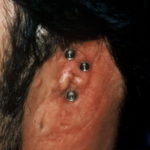
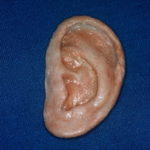
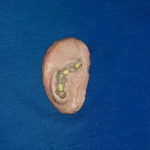
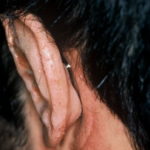
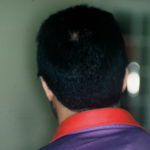
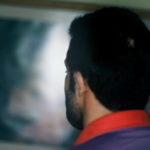
Ear prosthesis- case 4
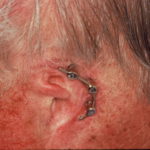

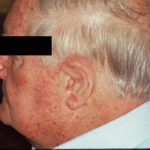
Ear prosthesis- case 5


Nasal prosthesis- case 1


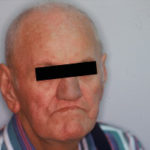
Nasal prosthesis- case 2


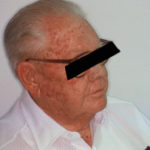
Nasal prosthesis- case 3



Orbital prostheses
